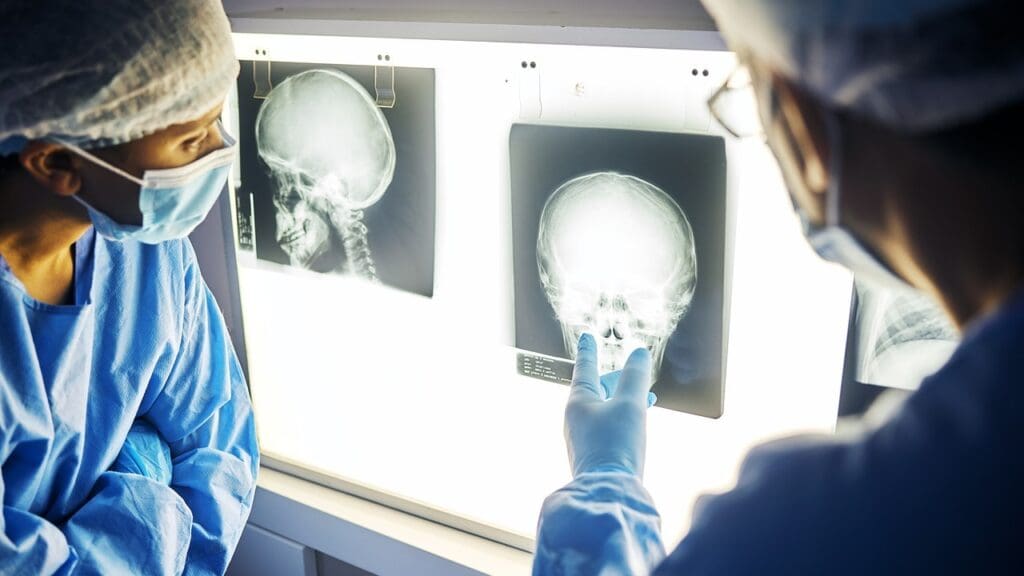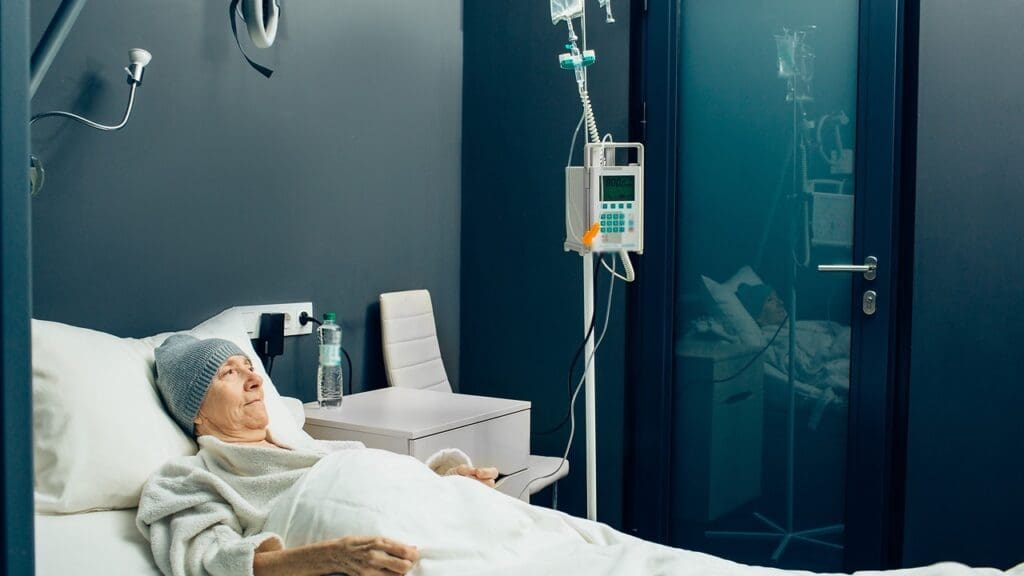
Having brain surgery is a big deal. It needs careful planning and aftercare. At Liv Hospital, we know patients and their families worry about complications after surgery.
The road to getting better is tough. It can include problems with thinking, speaking, and moving. We help our patients deal with these issues.
Our team focuses on helping patients get through recovery. We make sure they get the right help to live better lives. We offer world-class healthcare and support for patients from abroad.
Key Takeaways
- Careful planning is key for brain surgery and aftercare.
- Potential issues include thinking problems and physical disabilities.
- Good rehab is essential to handle these challenges.
- Liv Hospital offers care centered on the patient.
- Recovery is a complex journey needing dedicated support.
Understanding Brain Surgery: Types and Purposes
Brain surgery, or neurosurgery, is done for many reasons. It includes removing tumors, relieving pressure, and fixing blood vessels. The surgery type greatly affects the risks and results.
Common Reasons for Brain Surgery
People have brain surgery for several reasons. Brain tumor surgery is common to remove tumors. It also treats vascular issues and relieves pressure from trauma or infection.
Different Surgical Approaches and Their Risks
There are different brain surgery methods, each with its own risks and benefits. Open brain surgery, or craniotomy, removes part of the skull to access the brain. Minimally invasive surgeries use small incisions and tools to cause less damage. The choice depends on the patient’s condition and the surgeon’s skill.
| Surgical Approach | Risks | Benefits |
|---|---|---|
| Open Brain Surgery | Infection, bleeding, brain damage | Direct access to the affected area |
| Minimally Invasive Surgery | Less risk of infection, smaller scars | Reduced recovery time, less tissue damage |
Immediate Post-Operative Effects
The time after brain surgery in the hospital is very important. Patients are watched closely for any problems. They usually stay in the intensive care unit (ICU) or a special neurosurgery ward.
Hospital Recovery Phase
Patients often feel pain, tiredness, and confusion after surgery. Managing pain well is key to comfort and healing. We also help with symptoms like nausea or headaches to make recovery easier.
Early Complications to Monitor
Though rare, early problems can be infections, bleeding, or seizures. Our team watches closely to spot and handle these issues fast. A medical expert says, “Finding problems early is vital to avoid lasting harm and get the best results for patients.”
Signs of early problems include more pain, fever, or changes in how the brain works. Our team knows how to spot these signs and act quickly to fix any issues.
Long Term Side Effects of Brain Surgery: An Overview
It’s important to know about the long-term side effects of brain surgery. This helps set realistic goals and improve care after surgery. The effects can change a lot based on the surgery type, tumor location, and the patient’s health.
Factors Influencing Long-Term Outcomes
Many things can affect how well a patient does after brain surgery. The surgery type, tumor size, patient’s age, and health are key. The surgeon’s skill also matters a lot.
Permanent vs. Temporary Effects
It’s important to know if side effects are permanent or temporary. Some changes may get better over time. Others might last longer. Knowing this helps manage hopes and plan for recovery.
Quality of Life Considerations
The effects on quality of life are huge. Problems like memory loss, speech issues, and physical disabilities can change daily life. We help patients and families find ways to lessen these effects and improve life quality.
Cognitive Changes After Brain Surgery
After brain surgery, patients may face many cognitive changes. These changes can affect their daily life and well-being. Managing and rehabilitating these changes is key.
Memory and Concentration Issues
Memory and concentration problems are common after brain surgery. Patients might struggle to form new memories or recall familiar things. They may also find it hard to focus on tasks or follow conversations.
Executive Function Challenges
Executive function includes planning, decision-making, and problem-solving. Brain surgery can impact these skills. This can make daily tasks, decision-making, and adapting to new situations harder.
Cognitive Rehabilitation Strategies
Fortunately, there are ways to manage these changes. Cognitive training programs, memory aids, and techniques to help daily functioning are available. A team can help create a plan that meets a patient’s needs.
Understanding cognitive changes after brain surgery is important. Using the right rehabilitation strategies can help patients recover well. This way, they can navigate their recovery journey effectively.
Speech and Language Difficulties Following Brain Procedures
Brain surgery can lead to speech and language problems. These issues can greatly affect a person’s life and how they communicate.
Aphasia and Communication Disorders
Aphasia is a condition that makes it hard to talk, read, write, and understand language. It can happen after brain surgery. The severity and type of aphasia depend on the brain area affected.
Other speech problems like dysarthria and apraxia of speech can also occur. These issues affect how well someone can speak. Knowing about these conditions helps in creating a good recovery plan.
Rehabilitation Options for Speech Recovery
There are many ways to help people get better at speaking and understanding language after surgery. Speech-language therapy is a big part of this. It’s designed to meet each person’s unique needs.
| Therapy Type | Description | Benefits |
|---|---|---|
| Individual Speech Therapy | One-on-one therapy sessions focusing on the patient’s specific speech and language challenges. | Personalized attention and tailored therapy plans. |
| Group Therapy | Group sessions that provide opportunities for social interaction and practice in a supportive environment. | Enhanced social skills and community support. |
| Computer-Assisted Therapy | Utilizes computer programs to provide additional practice and reinforcement of speech and language skills. | Increased practice opportunities and engaging interactive tools. |
We believe a detailed rehabilitation plan is key for overcoming speech and language issues after brain surgery. With the right approach, patients can improve their communication skills a lot.
Physical Side Effects and Mobility Challenges
After brain surgery, patients face many physical side effects. These can affect their mobility and life quality. The type of surgery, brain area involved, and health play a role.
Weakness and Coordination Problems
Weakness or numbness in parts of the body is common after brain surgery. This can be due to the surgery or swelling in the brain. Coordination issues also arise, as the brain’s movement control is affected.
Physical therapy is key in helping patients regain strength and improve coordination.
Balance Issues and Fall Risk
Balance problems are a big concern after brain surgery. Patients may feel dizzy or unsteady, raising the risk of falls. It’s vital for patients to use handrails when walking and have help during the early recovery.
Physical Therapy Approaches
Physical therapy is vital in the recovery after brain surgery. Therapists create custom exercise plans to boost strength, coordination, and balance. These programs help patients regain mobility and independence.
Techniques include exercises for range of motion, balance, and walking. By knowing the physical side effects and challenges, patients and caregivers can prepare for recovery. With the right support and therapy, many patients overcome these issues and recover well.
Sensory Changes: Vision and Hearing Alterations
After brain surgery, vision and hearing can change. This is because the brain reacts in complex ways to surgery. These changes can really affect a person’s life, so it’s key to know why they happen and how to deal with them.
Visual Field Deficits
Visual field deficits are common after brain surgery. They happen when surgery impacts the brain’s visual centers. This can cause partial blindness or blind spots in what you see.
Auditory Processing Changes
Auditory processing changes can also happen. They affect how the brain handles sounds. This might make it hard to hear, understand speech, or deal with many sounds at once.
Adaptive Strategies for Sensory Deficits
There are ways to manage sensory deficits. For visual field issues, scanning more or using prism glasses can help. For hearing changes, using visual cues or reducing noise can make talking easier.
| Sensory Change | Adaptive Strategy |
|---|---|
| Visual Field Deficits | Scanning techniques, Prism glasses |
| Auditory Processing Changes | Visual cues, Reducing background noise |
Emotional and Psychological Effects
Brain surgery can deeply affect a patient’s emotional and psychological health. As we go through recovery, it’s key to recognize the emotional and psychological shifts that happen.
Patients and their families need to be ready for the emotional and psychological impacts. These can be as tough as the physical recovery.
Mood Disorders After Brain Surgery
Mood disorders like depression and anxiety are common after brain surgery. These can be caused by the surgery itself or the stress of getting better. It’s important for patients and their families to know the signs and symptoms of mood disorders to get help early.
Personality Changes and Their Impact
Brain surgery can also lead to personality changes. These changes can affect how a person behaves, feels, and interacts with others. These changes might need adjustments in daily life and how we interact. Our team helps patients and their families deal with these changes, providing support and guidance during recovery.
Mental Health Support Resources
There are many mental health support resources for patients dealing with the emotional and psychological effects of brain surgery.
“A strong support system is key for patients going through brain surgery. With the right help and care, patients can face the challenges of recovery and improve their quality of life.”
We offer counseling services, support groups, and educational resources. These help patients and their families handle the emotional and psychological sides of recovery.
Seizures as a Long-Term Complication
Brain surgery can lead to seizures as a long-term effect. Seizures can greatly affect a patient’s life quality. It’s important to know the risks and how to manage them.
Risk Factors for Post-Operative Seizures
Several factors can raise the chance of seizures after brain surgery. These include:
- The type and location of the surgery
- Pre-existing medical conditions
- The presence of brain tumors or lesions
- Previous history of seizures
| Risk Factor | Description | Impact on Seizure Risk |
|---|---|---|
| Surgery Type | Type of surgical procedure performed | High-risk procedures increase seizure likelihood |
| Pre-existing Conditions | Presence of other medical conditions | Certain conditions may elevate seizure risk |
| Brain Tumors or Lesions | Presence of abnormal growths in the brain | Can significantly increase seizure risk |
Management and Treatment Options
Managing seizures involves medication, lifestyle changes, and sometimes more surgery. Antiepileptic drugs are often used to control seizures. We help patients find the best treatment plan.
“The goal of seizure management is to achieve the best possible control with minimal side effects, improving the patient’s quality of life.”
Living with Seizure Disorders
Living with a seizure disorder requires careful management and lifestyle adjustments. Patients are advised on safety measures, such as avoiding driving during high-risk periods. They are also encouraged to keep a seizure diary to track occurrences.
Brain Tumor Removal Recovery: Special Considerations
Understanding the special considerations for brain tumor removal recovery is key for patients. It helps them manage their post-operative care well. Brain tumor removal recovery can be complex, with various side effects and challenges.
Side Effects After Brain Tumor Operation
Patients may face side effects after brain tumor surgery. These include cognitive changes, speech difficulties, and physical weakness. The side effects depend on the tumor’s location, size, and type.
| Common Side Effects | Description | Management Strategies |
|---|---|---|
| Cognitive Changes | Memory issues, concentration problems | Cognitive rehabilitation therapy |
| Speech Difficulties | Aphasia, communication disorders | Speech therapy |
| Physical Weakness | Weakness, coordination problems | Physical therapy |
Glioblastoma Stage 4: What to Expect After Surgery
For those with glioblastoma stage 4, the prognosis after surgery is tough. Surgery can ease symptoms and improve life quality. But, the long-term outlook depends on many factors.
Can You Recover From a Brain Tumor?
Recovery from a brain tumor depends on several factors. These include the tumor type, stage, and overall health. While some patients fully recover, others face ongoing challenges. It’s vital for patients to work with their healthcare team for a personalized recovery plan.
Recovery Timeline and Rehabilitation Process
The journey to recovery after brain surgery is complex and varies for each person. It’s important to understand this process to manage expectations and smoothly return to daily life.
Brain Tumor Surgery Recovery Time
Recovery time after brain tumor surgery depends on several factors. These include the surgery’s extent, the patient’s health, and any complications. The initial recovery phase in the hospital usually lasts a few days to a week.
How Long Does It Take to Heal From Brain Surgery?
Healing from brain surgery takes time, often weeks to months. The type of surgery, the patient’s age, and their health before surgery all play a role.
How Long After Brain Surgery Can You Drive?
Driving after brain surgery is not recommended until the patient has fully recovered. This is usually after a few weeks. Always follow your doctor’s advice on this.
Returning to Work and Daily Routines
Returning to work and daily routines should be done slowly. The time it takes varies, but most patients can get back to normal within a few months after surgery.
| Recovery Milestone | Typical Timeframe |
|---|---|
| Hospital Discharge | 3-7 days |
| Return to Light Activities | 2-4 weeks |
| Return to Work | 6-12 weeks |
We know every patient’s recovery is unique. Our team is dedicated to providing personalized care and support throughout the rehabilitation process.
Conclusion: Navigating Life After Brain Surgery
Life after brain surgery can be tough, but with the right help, patients can handle long-term effects. We’ve talked about brain surgery types, reasons, and possible problems. Knowing these helps patients get ready for recovery and make smart care choices.
After brain surgery, patients need ongoing support and rehab to deal with side effects. These can include thinking changes, speech issues, and physical problems. Our team is here to offer full care and advice, helping patients succeed in their recovery.
For those dealing with life after brain tumor surgery, focusing on recovery and rehab is key. This means working on thinking skills, physical health, and emotional support. A complete recovery plan helps patients regain their freedom and feel better overall.
What are the long-term side effects of brain surgery?
Brain surgery can lead to long-term issues like memory problems and trouble speaking. It can also cause physical disabilities, vision or hearing changes, mood swings, and seizures. These effects vary based on the surgery type, brain area affected, and the patient’s health.
How long does it take to recover from brain surgery?
Recovery time from brain surgery varies. It depends on the surgery’s complexity, the patient’s age, and health. Patients usually need weeks to months to recover. Sometimes, it can take up to a year or more for full recovery.
Can you recover from a brain tumor?
Recovery from a brain tumor depends on several factors. These include the tumor type, its location, and treatment success. Some benign tumors can be removed and allow for full recovery. Malignant tumors, like glioblastoma, may need more treatments like chemotherapy and radiation.
What are the side effects after brain tumor surgery?
After brain tumor surgery, patients might experience memory issues, speech problems, weakness, and sensory changes. The severity of these side effects depends on the tumor’s location and surgery extent. Rehabilitation helps manage these effects and improves quality of life.
How long after brain surgery can you drive?
Driving after brain surgery depends on the patient’s recovery. It’s about their cognitive and physical abilities. Doctors usually advise against driving until they confirm it’s safe, which can be weeks to months after surgery.
What is the prognosis for glioblastoma stage 4 after surgery?
Glioblastoma stage 4 after surgery has a poor prognosis. It’s a serious condition with a low long-term survival rate. Treatment includes surgery, radiation, and chemotherapy. The patient’s health, age, and treatment response are key in determining the prognosis.
What are the risks associated with different brain surgery approaches?
Different brain surgeries have different risks. These include infection, bleeding, seizures, and damage to brain tissue. Risks depend on the surgery type, brain area, and patient’s health. Minimally invasive surgeries might have fewer risks, but the best approach varies by case.
How can cognitive changes after brain surgery be managed?
Cognitive changes after brain surgery can be managed with rehabilitation. This includes memory aids, concentration techniques, and training for executive functions. These programs are customized to improve cognitive function and quality of life.
What rehabilitation options are available for speech recovery after brain surgery?
Speech therapy is available for speech recovery after brain surgery. It’s tailored to the individual’s needs. Techniques used can help improve communication and regain speech and language abilities.
References
- The Brain Tumour Charity (Side Effects of Neurosurgery) : https://www.thebraintumourcharity.org/brain-tumour-diagnosis-treatment/treating-brain-tumours/adult-treatments/side-effects-brain-tumour-treatment/side-effects-neurosurgery
- National Cancer Institute (NCI) : https://www.cancer.gov/rare-brain-spine-tumor/blog/2020/side-effects
- PMC – PubMed Central : https://pmc.ncbi.nlm.nih.gov/articles/PMC9665061
- PMC – PubMed Central : https://pmc.ncbi.nlm.nih.gov/articles/PMC7906268











